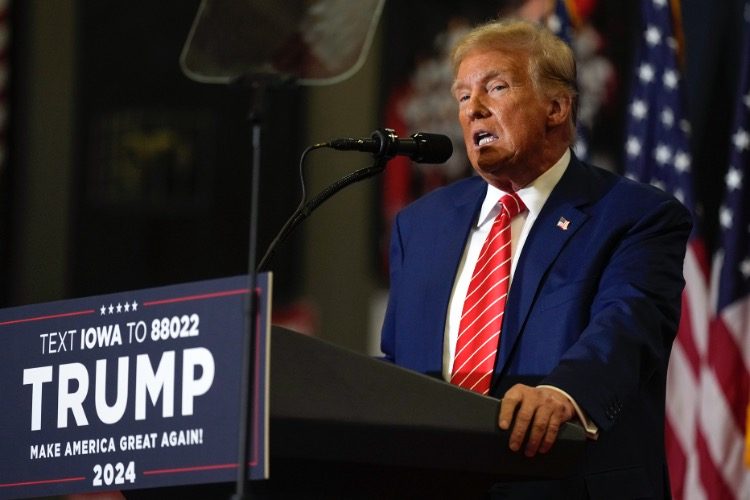
A recent opinion article published in The Hill has made several claims regarding the legal, historical, and constitutional questions regarding the legal predicament of former President Donald J. Trump.
In recent years, the U.S. Supreme Court (SCOTUS) has played a pivotal role in adjudicating state criminal convictions, particularly through the writ of habeas corpus. This article examines the evolving scope of SCOTUS’s authority in such matters, the potential self-pardon of a president, the limitations of gubernatorial powers, and the intricate legal and constitutional questions arising in the context of former President Donald Trump’s political and legal scenarios.
The Supreme Court’s Expanding Role in State Convictions
Historically, SCOTUS’s involvement in state criminal convictions was restricted. However, in 1915, the Court began to evolve its contemporary stance on the writ of habeas corpus and its application to state criminal convictions, beginning with the landmark case of Frank v. Mangum. The Court’s decision in the Mangum case and its progeny have marked a significant shift in the Supreme Court’s position in this area, expanding federal oversight over state court decisions. While the Court would likely remain indifferent in straightforward cases such as murder convictions, its engagement becomes more pronounced and its decisions considered absolutely dispositive in matters inextricably entwined with the fundamental fabric of the Constitution, such as those dealing with federal elections or concerning high-profile figures such as a former president.
Presidential Pardons: The Scope and Limits
The power of presidential self-pardon, while theoretically possible under Article II of the U.S. Constitution, is confined to “offenses against the United States.” This legal nuance brings complexity to the debate on presidential immunity and accountability, especially in cases involving a president’s own actions. In the case of President Trump, however, should he be convicted of violating state law, then Article II’s pardoning power would not apply.
Governors and Their Limited Pardon Power
In most states, the governor, as chief executive, is granted the power to pardon convicted criminals. This is not the case in Georgia, however; the governor of Georgia, per state statutes, does not possess this authority. There, the power to pardon criminals is granted to a board whose members are appointed by the governor. An additional check on the pardon process in Georgia is the requirement that the sentence imposed be served before a petition for pardon would be considered. Without sounding too conspiratorial, this aspect of Georgia’s state criminal code could be the reason the Peach State was chosen as the state for pursuing conviction of the former president, when other states could have served as equally valid venues.
The Supreme Court’s Stance on Establishment Powers
It may be that through articles such as the one published in The Hill, the Deep State is attempting to influence Supreme Court justices, prodding them to uphold the decision of the Colorado Supreme Court finding Trump disqualified under the 14th Amendment from serving as president (see my analysis of that opinion and the underlying issue here), or revealing the establishment’s intent to use the case against former President Trump to propel the people toward insurrection or acceptance of dictatorship. However, there is hope in the fact that, in recent years, the current Court has shown a tendency to diverge from supporting the Deep State’s Progressive agenda. Its rulings on key issues such as abortion, gun control, and the First Amendment have often stymied the progress of the anti-American and absolutist agenda of the Deep State. This independence suggests a judiciary less influenced by partisan interests and more aligned with originalist constitutional interpretation, despite undeniable underlying partisan leanings and occasional support of statism.
The Constitutional and Practical Implications of an Incarcerated President
Theoretically, Trump’s presidential powers could be transferred under the 25th Amendment, which allows for the vice president to assume the presidential role if the president is “unable to discharge the powers and duties of his office.” However, this would necessitate the vice president and most Cabinet members, likely Trump appointees, to agree that Trump is unfit for his role, which seems unlikely.
A more plausible scenario is that Trump might initiate legal action to secure his release on the grounds that his incarceration hinders him from performing his presidential duties (the “Take Care Clause” of Article II, Section 3). Any legal battle would probably center around the concept of separation of powers, with Trump’s attorneys arguing that imprisoning a legitimately elected president would constitute judicial overreach into the executive branch’s authority, leaving him unable to perform one of the president’s most constitutionally critical powers — executing the laws.
The Broader Perspective: Sovereignty and Constitutional Adherence
In conclusion, the legal and constitutional questions surrounding Donald Trump’s potential re-election and presidency are multifaceted and unprecedented. They demand innovative legal solutions respectful of our country’s constitutional framework and the sovereignty of its people and the states. This situation illustrates the ongoing need for diligent effort to restoring the correct constitutional relationship between federal and state authority, a cornerstone of American governance.
The people of the United States are sovereign, and acting through their collective political organization as states, they are the final arbiters of what is and is not constitutionally sound. As an organization committed to constitutional fidelity and education, The John Birch Society emphasizes the role of the states and the people in determining constitutional soundness. This approach respects our founding principles, advocating for a populace educated about their rights and the limits of federal authority and engaged in the effort to maintain both.



